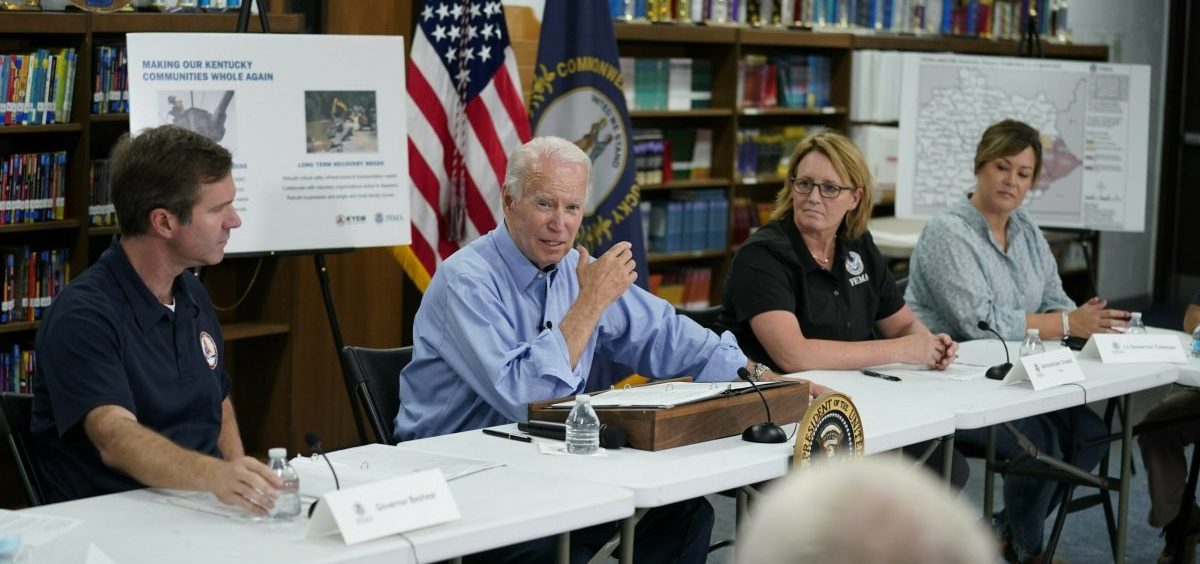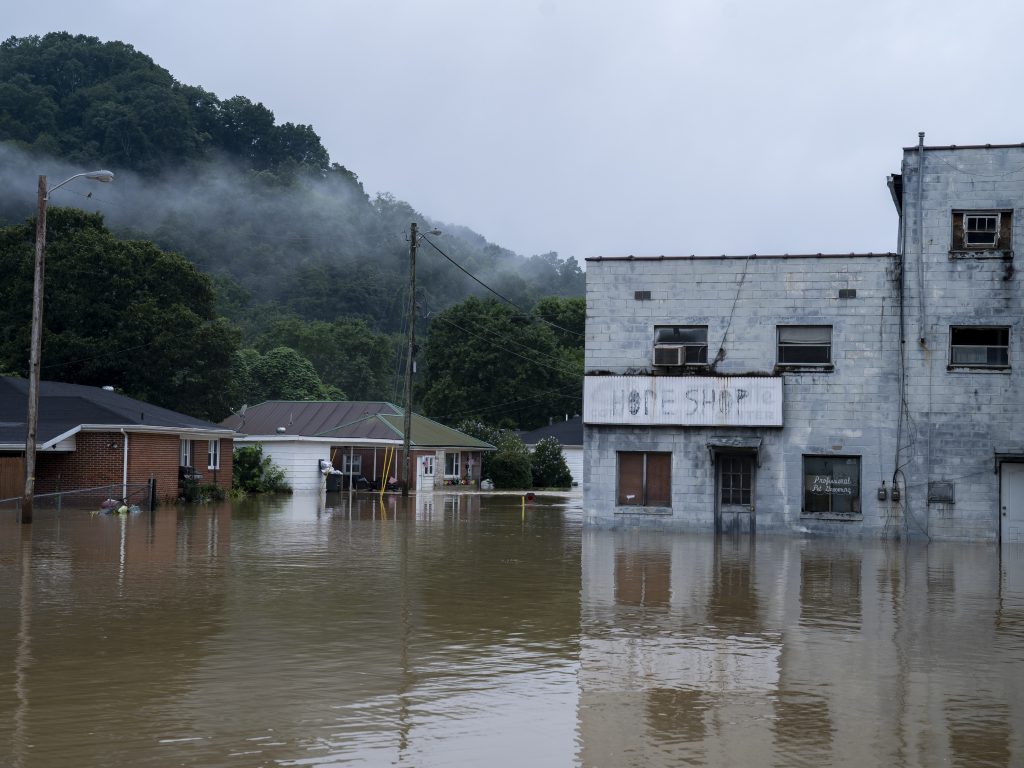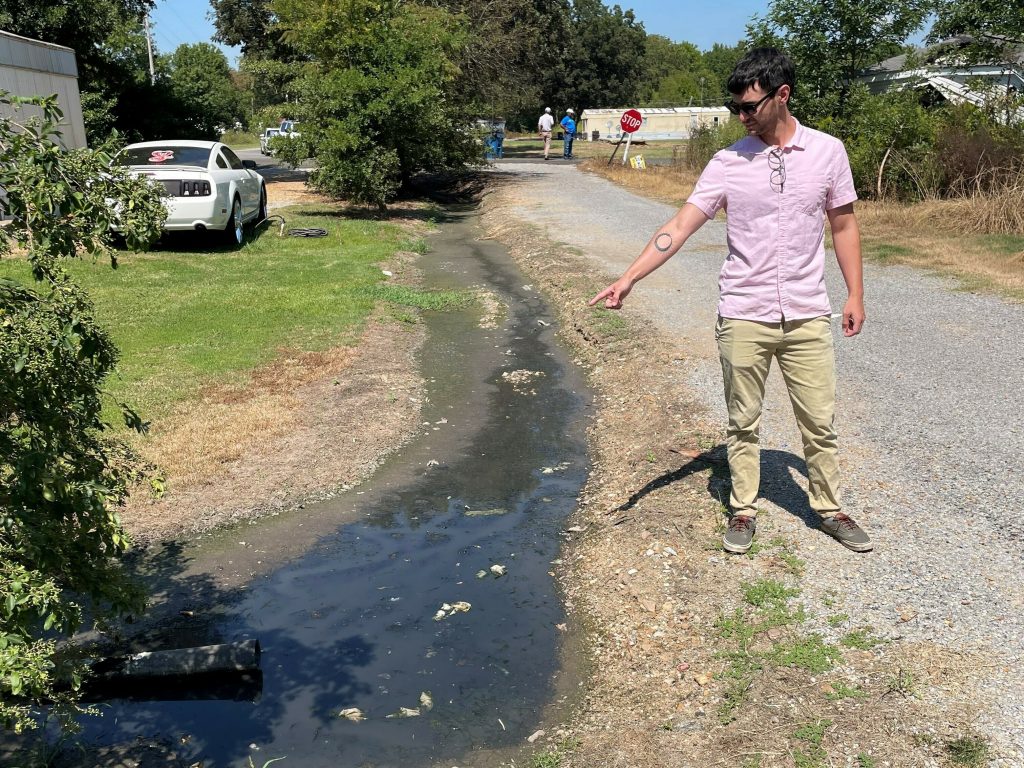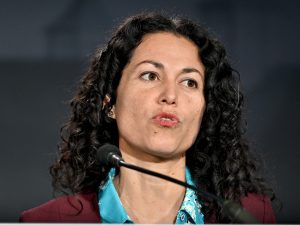News

Rural communities want to tap federal funding. But it’s hard to know where to start
By: Ximena Bustillo | NPR
Posted on:
JACKSON, Ky. (NPR) — Mayor Laura Thomas knows there are a lot of federal funding programs that could help her small town of Jackson, Ky., recover from a series of recent disasters: two historic floods, a destructive ice storm and the pandemic.
The problem is: it’s hard to know exactly where to start to go about getting the funding.
There are more than 400 federal funding programs designed for rural communities. And there’s a new influx of funding passed in the last Congress from the trillion-dollar infrastructure law and the climate incentives of the Inflation Reduction Act.
“This is kind of like our one shot probably in my lifetime of ever getting this much federal money to help us make improvements in the community,” Thomas said.
But like many small-town mayors, Thomas doesn’t have grant writers or experienced staff to help sift through the programs. She says it’s “overwhelming” to try to figure out how to navigate them. “We just get a different kind of answer each time you ask,” Thomas said. “And then my fear is that I won’t make the right decision.”
There’s a lot at stake for Breathitt County, Thomas’ corner of southeastern Kentucky, where the 2022 flood killed at least 37 people and destroyed the homes of thousands.
“A lot of people are living in camper trailers that are still considered sheltering and they want opportunities to get into something permanent and they don’t want to have to leave the mountains,” Thomas said. “This is their home.”

The Rural Partners Network is trying to be a ‘matchmaker’
The White House knows this is a problem across the country. So a year ago, it created a pilot program called the Rural Partners Network, naming point people to serve as guides to federal funding in select portions of 10 states and Puerto Rico.
Run by the U.S. Department of Agriculture, the network includes 10 communities and involves 60 “rural desk officers” from 20 federal agencies.
“I like to say that we’re matchmakers when it comes to rural communities and our federal agencies that are at the table,” said Rachel Chambers, one of the community liaisons in Kentucky.
“We can help move projects forward, whether it’s capacity building or technical assistance and different grant programs, or even if it’s just making an introduction for a community,” she said.
In some cases, it has led to policy changes. Chambers learned that home repair grants were not covering the costs for families in southeast Kentucky to be able to rebuild their homes after the floods.
USDA officials were able to raise the cap on grants to $36,000 from $10,000 for all areas that had been declared presidential disasters in 2022.
The program has also helped the tiny town of Darling, Miss., where residents have struggled with failing septic systems, leaving sewage flowing into creeks and ditches.
“We’ve got a real issue in terms of sanitation and health,” said Ines Polonius, the chief executive of Communities Unlimited, a nonprofit that works in seven southern states. The program helped the town secure a $2.5 million grant for a wastewater project. And they got an answer quickly, within four months. “A project like this would normally take two years,” Polonius said.

The program currently helps only a select group of communities
While the program is small, the administration said it’s getting results. Network staff has held nearly 200 meetings with more than 800 local governments and nonprofits to try to match problems with solutions, said USDA Undersecretary for Rural Development Xochitl Torres Small.
“Having the additional staff on the ground makes a huge difference,” Torres Small said. “They can take the time to do the convening and the planning that’s so crucial for pursuing a grant or a loan and having those plans that really make it a feasible project in the first place.”

And that’s just a slice of the total federal grants going to rural areas beyond the program. The White House said in fiscal 2021, there were 55 such awards totaling $880 million. That grew in fiscal year 2022 to 122 awards totaling more than $2 billion. The jump includes awards from the new infrastructure law.
But the pilot program covers just a small fraction of rural areas in the country. For example, Laura Thomas’ town of Jackson, Ky., is not included in the network.
And there are entire states that have no help at all. Ethan Dunbar is mayor of Lewisville, Ark., where the city lost water twice in 2019. The town has no maps to show where sewage pipes might be outdated and relies on its residents to report issues. He has secured some federal grants himself but said more help is needed.
“So every now and then you get a win, but most times you lose,” Dunbar said. “Every one of these small rural communities have issues with their water distribution, and this is a system that’s a basic necessity. But we don’t have the funds to bring those systems up to date.”
The Biden administration wants to expand the Rural Partners Network to more communities. But that depends on funding from Congress. In his 2022 budget proposal, Biden asked lawmakers for nearly $40 million for the program. Congress has only given $10 million so far.
There is a long pattern of rural areas being ignored and left behind, said Jim King, president of Fahe, a nonprofit organization working to develop rural Appalachia. He recalled Clinton-era empowerment zones and the Obama-era promise zones that sought to accomplish some of the same goals at the Rural Partners Network.
But none of the programs have had staying power, King said, noting the problems in rural America need a long-term view when most politicians are looking for “shovel-ready” short-term fixes.
“They have a short attention span,” King said.
9(MDU1ODUxOTA3MDE2MDQwNjY2NjEyM2Q3ZA000))
Transcript :
A MARTÍNEZ, HOST:
Small communities across America could use the federal government’s help with housing, utilities and hospitals. But NPR’s Ximena Bustillo reports many have a hard time applying for it.
XIMENA BUSTILLO, BYLINE: Laura Thomas is mayor of Jackson. It’s a small town in the southeastern part of Kentucky. And in the past three years, it has been hit by some big disasters – two historic floods, a destructive ice storm and the pandemic.
LAURA THOMAS: If you could see my desk, you can see I’m just totally overwhelmed.
BUSTILLO: Thomas wants help from the federal government to rebuild homes, but it’s hard to know where to start.
THOMAS: We just get a different kind of answer each time you ask. And this is kind of like our one shot probably in my lifetime of ever getting this much federal money to help us make improvements in the community.
BUSTILLO: There are some 400 federal programs for rural areas, and then there’s all the new money from the infrastructure law and the climate spending bill. But she’s on her own when it comes to figuring out how to get the grants.
THOMAS: We have a city clerk, and we have an assistant clerk. That’s it here at City Hall.
BUSTILLO: The White House knows it’s a problem not just for Jackson, but for small communities across the country. So they launched the Rural Partners Network. It’s a pilot program where federal employees help communities navigate assistance programs. Right now it’s running in parts of 10 states and Puerto Rico.
XOCHITL TORRES SMALL: Unlike so many federal agencies, we have people who live in the communities that they serve.
BUSTILLO: That’s Xochitl Torres Small. She’s in charge of the rural development branch of the Agriculture Department, which is running the program. She wants to make sure that small towns don’t miss this chance for new housing, broadband, sewage and road repairs. So the Rural Partners Network is hiring people like Rachel Chambers. She’s helping to connect a group of eight counties in Kentucky to federal help, especially for people dealing with the aftermath of the floods.
RACHEL CHAMBERS: There weren’t enough housing rental vouchers in east Kentucky before the flood. There were people that were precariously housed, and now after the flood, over 1,600 homes were evicted as a result. And the need for housing is greater than it ever was.
BUSTILLO: One problem – it’s only eight counties, and it doesn’t include places like Jackson, where Mayor Thomas is looking for help. But Chambers says she’s doing what she can to make a difference. One thing she found was that housing repair grants didn’t give enough money to help people rebuild their homes. That led to policy changes in Washington, said the Agriculture Department’s Torres Small.
TORRES SMALL: And so because of her work, we were able to change regulations to provide more funds for home repair in Kentucky and in other places that had experienced disasters.
BUSTILLO: The program has also helped the tiny town of Darling, Miss. It needed money to build a sewage system.
INES POLONIUS: We’ve got straight pipes of people’s sewer flowing into creeks.
BUSTILLO: That’s Ines Polonius, the head of Communities Unlimited, a nonprofit in the South.
POLONIUS: The sewer’s in ditches. I mean, we’ve got a real issue in terms of sanitation and health.
BUSTILLO: Polonius says the pilot program helped get Darling the money it needed.
POLONIUS: A project like this would normally take two years. So we went from – basically, you can say, in four months we knew about the award. Now we can move into construction.
BUSTILLO: The Agriculture Department says it’s starting to see results from this small pilot program. Now it wants to hire more people in more places, but they need more money from Congress. And unless the government can build up this small network, communities like Jackson in Kentucky could be left to figure it out on their own.
Ximena Bustillo, NPR News.
(SOUNDBITE OF CALUM GRAHAM’S “GRACE”) Transcript provided by NPR, Copyright NPR.

